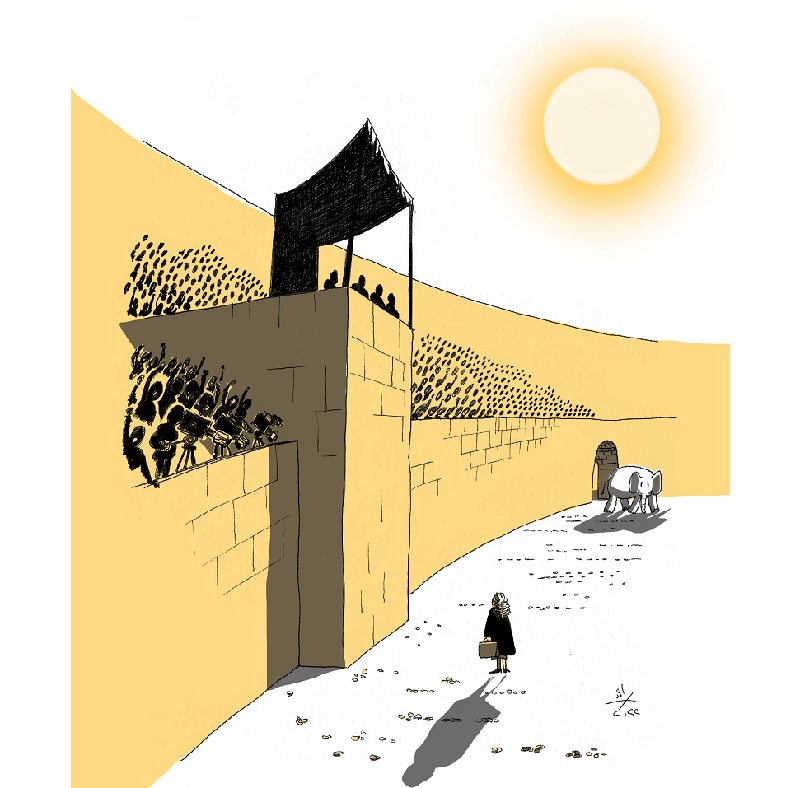Statement by the Independence of the Judiciary Coalition on the Traffic Authority Case: “Enemizing” Daring Judges Threatens Accountability Efforts

As part of a concerning pattern, the public has recently witnessed a remarkable development in the investigation into the Traffic Authority and the violations committed therein. Dozens of people were arrested following investigations not only into bribes taken by individual employees but also into systematic and organized corruption within the institution. While the investigation into the low-ranking employees overseen by Advocate General in Mount Lebanon Judge Nazik Khatib went somewhat normally, when it extended to Traffic Authority President Huda Salloum it struck the same big-gun means of defense that we have seen used in various other cases concerning senior officials. Besides the attacks on and bullying of the judge in the media, Salloum’s lawyers hastened to file two cases to restrain the judge from investigating her. While the Beirut Court of Appeal dismissed the disqualification case on 24 November 2022, the mal-judging case remains pending before the Full Bench of the Court of Cassation.
Given this turn of events, the IJC would like to express the following:
The Emergence of the “Enemize the Judge” Template for Halting Senior Officials’ Prosecutions
Numerous senior officials under criminal investigation have resorted to filing disqualification and mal-judging cases. They seek to benefit from these claims’ immediate effect, namely restraining the judge and, in practice, halting their prosecution. Under the Code of Civil Procedure, this effect applies irrespective of how flimsy or vexatious the claim is, and the courts examining the claims have insufficient means of deterring their abuse.
Such claims were filed in the cases of the port blast, Tayouneh, and the banks and corruption, most notably the open cases against the Salameh brothers. In fact, we are witnessing the emergence of a new template for defending senior officials: make the judge the enemy in order to halt their prosecution. This method is especially effective because of the refusal to issue the judicial personnel charts decree appointing the chamber presidents in the Court of Cassation, which continues to deprive the court’s Full Bench of its quorum and thereby prevent it from examining the pending mal-judging claims. Consequently, these cases’ immediate effect of restraining the judge becomes semi-permanent, or at least indefinite. Hence, this template transforms a fair trial safeguard (the defense right to file to disqualify the judge, transfer the case on the basis of legitimate doubt, or allege mal-judging) into a tool for undermining the whole trial, even in public proceedings to protect society’s rights or combat corruption. In practice, this obstructs the separation of powers and the judicial authority.
The Danger of Fatiguing and Frustrating Judges Who Dare and Making Their Efforts Seem Futile
Equally grave is the subjection of judges who dare open cases against senior officials to grueling conditions, namely a deluge of claims against them and the bullying and denigration in the media that usually follow, as well as the diversion of public attention from liabilities in major crimes to questions about the judge’s ties and leanings. Many such judges languish under the burden of the cases against them, unable to continue their investigations. Consequently, any judicial effort to investigate important national issues seems futile. This frustrates judges and drives them toward more disengagement and self-restraint, whereas what we need from them at this difficult stage of Lebanese history is a broad mobilization to protect freedoms, rights, and social interests.
Facing these very concerning developments, the IJC declares and demands the following:
- We stand in solidarity with judges who dare take action to protect rights, freedoms, and public interest and fully appreciate their efforts.
- We hold the dominant political forces responsible for the popularization of the “enemize the judge” template for evading all accountability, which verges on a coup against the judiciary and the separation of powers.
- We call upon the bar associations to perform their guiding and disciplinary roles in ensuring that the right of defense is not abused, guaranteeing fair trial conditions without undermining them.
- We call on MPs to promptly amend the codes of civil and criminal procedure in a manner that prevents requests to restrain judges from having an immediate and direct effect irrespective of whether they are well-founded.
- More generally, we once again call on Parliament to declare that it will prioritize completing the bills on the independence of the judicial and administrative judiciaries in a manner that conforms to international standards of judicial independence and fair trial and frees the judicial councils and personnel chart decrees from political bargaining and vetoes.



